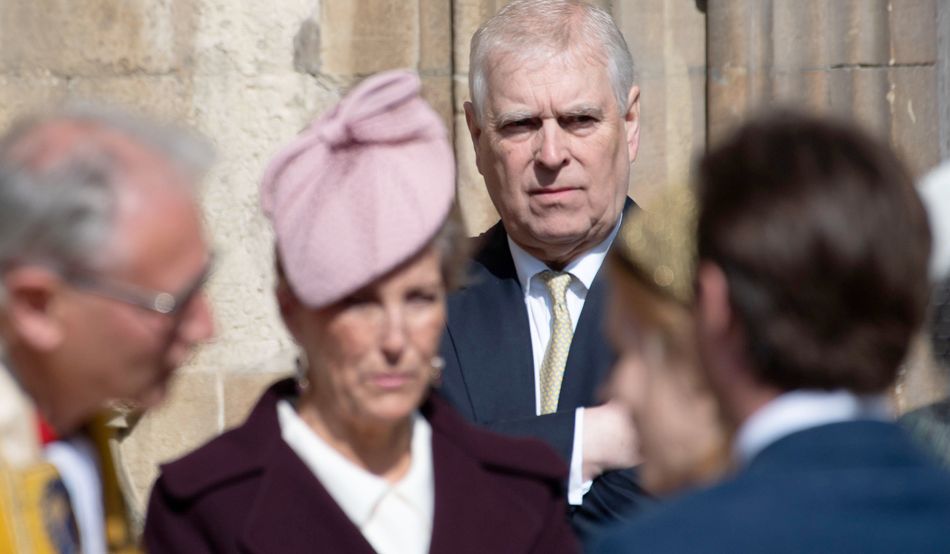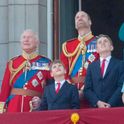What’s to be done about Prince Andrew, and why should we care? In the past, there would have been tried and tested solutions for the black sheep in any aristocratic family. They could, for instance, be packed off to a form of foreign exile: cities such as Florence, Paris or Brussels teemed with disgraced Britons.
They could—again, on past form—be awarded military commissions in the colonies. They could even be given small outposts to run: think of Andrew’s great uncle Edward being quietly bundled off to govern the Bahamas until the European fascism he dabbled in was defeated. Black sheep could be financially cut off, or cajoled into strategic marriages. A tiny minority turned to “good works” in a bid to purge their shame.
None of these avenues seems especially plausible in the case of the man we are still obliged to call the Duke of York. He has been stripped of many of the baubles, honorifics and pretend roles that he once had, but still the bad smell lingers on.
Attempts have been made to evict him from his grace and favour house and cut off the funds that once gushed through his many bank accounts. But still he squats in a £30m mansion, for which he reportedly pays the, um, princely sum of £250 a week.
Mocked, sued, disgraced, exposed, pilloried and vilified, he has no conceivable future public role in the constitutional monarchy. And that was before the latest devastating biography by Andrew Lownie, which—in any rational scheme of things—should surely drive the final nail into the woodwormed remnants of his reputation.
Lownie describes the duke today as “a prisoner in his own house, a scorned figure relieved of royal duties who spends his days playing golf and watching television”. He has moved from disgrace to re-disgrace. The book, published this month, looks at how the prince exploited his public position as a taxpayer-funded special representative for trade and investment to develop his own business activities and those of his ex-wife and two daughters.
It claims to reveal fresh information about his connections with the convicted paedophile and financier Jeffrey Epstein, which began earlier, lasted longer and were more extensive than has hitherto been realised.
Just over three years ago, Andrew managed to scrape together around £12m to settle the claims of sexual abuse by the late Virginia Giuffre, which he has always denied. As to his current circumstances, Lownie admits he has failed to uncover how the King’s younger brother continues to live the life of Riley.
“It remains a mystery how Andrew has been able to enjoy such an extravagant lifestyle without any obvious sources of income beyond his naval pension, family money he may have inherited and handouts first from Queen Elizabeth and now King Charles,” writes Lownie.
“He travels by private jet, has a collection of watches and expensive cars—including a £ 150,000 Patek Philippe watch, a £220,000 Bentley and a brand-new £80,000 Range Rover—and lives in Royal Lodge, which he spent £7.5m refurbishing and which has annual running costs of £250,000.”
Andrew appears to have been granted the use of a home in Abu Dhabi by the UAE royal family and there has been speculation that he might move there permanently. But could he end his days like washed-up double agents Donald Maclean or Guy Burgess, drinking themselves to death in exile in Moscow as they struggled with loneliness and irrelevance?
Scoff at Harry and Megan all you like, but it’s hard to see Andrew similarly monetising his diminished royal status. Not for Andrew the reality show redemption arc. No duke of York official Instagram account flogging royal-themed pitching wedges.
The least undignified path would be to settle down as a permanent recluse. No public appearances, no interviews, no balcony spots or Christmas appearances at Sandringham Church. He could become a semi-retired ghost, never quite invisible but never fully present. The duke of York would become a kind of civic haunting—glimpsed at the occasional funeral, his medals jangling distantly as he shuffles behind the dwindling band of still-functioning royals.
In such a role, Andrew could even perform the monarchy some sort of service. Every institution requires a scapegoat, someone who absorbs the public’s moral disgust, so the others may appear relatively spotless. By being so relentlessly embarrassing, Andrew almost redeems the rest of the Windsors. Compared with him, Camilla looks like a model of restraint, and Harry’s Californian exile resembles noble self-sacrifice. The monarchy could survive by feeding Andrew to the wolves at regular intervals, while quietly reinforcing the palace gates.
That’s the best gloss. In fact, the fate of Andrew matters because he reminds us of the peculiarly uncomfortable nature of our constitutional arrangements. Monarchy, like the hereditary peerage, is based on DNA, on family, on blood. The duke of York, like his brother, is not quite a private figure, nor is he an entirely public one. They all live in a world of semi-transparency, where relationships, money and influence blur jarringly into one.
Andrew’s avarice seems to have known few bounds. But, as we learned recently, the King and Prince William also rake in unimaginable sums by virtue of birth. Like a 13th-century Baron, the King trousers eye-watering sums of money from the Duchy of Lancaster, an outfit dating back to 1265 and which requires no actual work in return. Last year, Charles pocketed over £27m on top of his sovereign grant from this source. And that doesn’t include the undeclared income he receives from his estates at Sandringham and Balmoral.
William, on top of his income from the Sovereign grant, receives an additional £23.6m from the Duchy of Lancaster. His personal income is reportedly six times the combined salary of all the elected heads of state in Europe.
So, yes, Andrew—by looking so bad—could make the top ranks of royalty look good. Alternatively, he’s a reminder that the whole show relies on the rest of us not looking too closely. Maybe that small palace in Abu Dhabi is not the worst idea.













